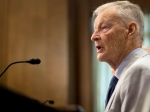 15.12.2015ANTI-ARMENIAN ACTIVITIES OF THE UNIVERSITY “ARMENOLOGICAL” DEPARTMENTS AND ANALITYCAL CENTRES IN TURKEY
15.12.2015ANTI-ARMENIAN ACTIVITIES OF THE UNIVERSITY “ARMENOLOGICAL” DEPARTMENTS AND ANALITYCAL CENTRES IN TURKEY
By: Simavoryan A. S.
In foreign countries Armenology in general has a number of important functions for Armeniancy, but in some cases it is distorted and made to serve anti-Armenian and anti-Armenological purposes. Today there are such “Armenological” centers abroad whose activity is different from others and has an adverse context. They can be described as anti-Armenological or pseudo-Armenological centers since they are engaged in anti-Armenian, anti-scientific and anti-propaganda activities.
 10.12.2015ARMENIANS IN THE MIDST OF CIVIL WARS: LEBANON AND SYRIA COMPARED
10.12.2015ARMENIANS IN THE MIDST OF CIVIL WARS: LEBANON AND SYRIA COMPARED
Ara Sanjian
Since March 2011, Syria has been the arena of a vicious civil war, in which numerous world and regional powers have also become deeply involved. The long-term existence of the deep-rooted Armenian communities in various parts of Syria has also come under question because of this protracted conflict. An unmistakable feeling of deep unease and anxiety is evident among most Armenians worldwide as fighting persists and no peaceful settlement appears to be in sight.
 09.12.2015COLUMBIA UNIVERSITY RESEARCHERS CONFIRM TURKEY’S LINKS TO ISIS
09.12.2015COLUMBIA UNIVERSITY RESEARCHERS CONFIRM TURKEY’S LINKS TO ISIS
BY HARUT SASSOUNIAN
A team of Columbia University researchers from the United States, Europe, and Turkey confirmed last week that the Turkish government has provided to ISIS: military cooperation, weapons, logistical support, financial assistance, and medical services. This detailed investigation was headed by David L. Phillips, Director of the Program on Peace-building and Rights at Columbia University’s Institute for the Study of Human Rights. He had served as Senior Advisor and Foreign Affairs Expert for the U.S. Department of State.
 30.11.2015ONCE A HAWK, BRZEZINSKI SEES HOPE FOR U.S.- RUSSIA RELATIONS
30.11.2015ONCE A HAWK, BRZEZINSKI SEES HOPE FOR U.S.- RUSSIA RELATIONS
A Cold War hardliner explains why this time is very different.
By Michael Hirsh / November 27, 2015
As Jimmy Carter’s national security advisor in the mid-to-late 1970s, Zbigniew Brzezinski had a reputation as a Cold War hawk, engaging in a famous feud with the more dovish Secretary of State Cyrus Vance, who later resigned in protest.
 06.11.2015EURASIAN ECONOMIC UNION AND ARMENIA
06.11.2015EURASIAN ECONOMIC UNION AND ARMENIA
Areg Gharabegian
The Eurasian Economic Union (EEU) is an economic union of states which was established on May 2014 by the leaders of Belarus, Kazakhstan, and Russia, and came into effect on January 1, 2015. Armenia joined on January 2, 2015 and Kyrgyzstan joined on August 6, 2015.
 29.10.2015RUSSIAN EXPERT PROPOSES FORMULA TO EASE FRONTLINE TENSION
29.10.2015RUSSIAN EXPERT PROPOSES FORMULA TO EASE FRONTLINE TENSION
In an interview with Tert.am, Vladimir Yevseyev, Head of the Caucasus Department at the Moscow-based CIS Institute, expressed his strong concerns over Azerbaijan’s recent heavy armed raids against Armenian civilians in the border region Tavush, calling for mutual efforts to push back armaments from the frontline. The expert said he thinks that Russian Foreign Minister Sergey Lavrov’s recent trip to Azerbaijan and his talks with President Ilham Aliyev was part of such efforts.
 07.10.2015THINK TANKS IN ARMENIA: WHO NEEDS THEIR THINKING?
07.10.2015THINK TANKS IN ARMENIA: WHO NEEDS THEIR THINKING?
By Yevgenya Jenny Paturyan
Think tanks are considered to be an important part of civil society: providers and keepers of expertise on important social, economic, environmental, political and other issues. Organizations like Chatham House and Carnegie Endowment for International Peace come to mind. In addition to ‘pure’ think tanks, there is a plethora of organizations that combine research with advocacy and action, Transparency International being a prominent example.
25.09.2015AN INTERVIEW WITH THE PRESIDENT OF THE ARMENIAN COMMUNITY OF CHINA, MR. HENRI ARSLANIAN
1. Please tell us a bit about the community and its main goals.
The Armenian Community of China has three main pillars: to unite and bring together individuals of Armenian heritage living in China, to share with the world at large the remarkable history of Armenians in China and to be the natural bridge between Armenia and China.
 22.09.2015THE GROWTH OF EXTREMISM AND THE FACTOR OF “INTELLECTUAL PARITY”
22.09.2015THE GROWTH OF EXTREMISM AND THE FACTOR OF “INTELLECTUAL PARITY”
Gagik Harutyunyan
The global security today depends to a large extent on the developments in Middle East in the context of the Islamic State’s (IS) actions. However, the IS is just the tip of the iceberg; the Middle Eastern processes are closely related to what happens in Central and Southeast Asia and continental “yellow, hot Africa.” In addition, escalation due to actions of extremist groups occurs not only in these regions. In terms of a number of indicators the same logic applies to the events in Ukraine.
 07.09.2015TRANSPORTATION MODES IN ARMENIA
07.09.2015TRANSPORTATION MODES IN ARMENIA
By Areg Gharabegian
Being a landlocked country, Armenia has an economy that depends on transport and crossborder access. Armenia has a few railway lines and an extensive road network. While rate of car ownership has been growing steadily in recent years, it is still relatively low. Public transport plays a critical role, especially in cities. The transportation network capacity is adequate for accommodating estimated demand up to 2020, but the infrastructure has deteriorated due to lack of funds.
 03.09.2015GLOBAL COMPETITIVENESS AND ARMENIA
03.09.2015GLOBAL COMPETITIVENESS AND ARMENIA
By Areg Gharabegian
A comprehensive Global Competitiveness study has been conducted by World Economic Forum utilizing various indicators to rank 144 countries in different areas. This report is a short summary of the findings of that comprehensive study with emphasis on Armenia and its neighboring countries. The study was done at a time when the global economy seems to be finally leaving behind the worst and longest- lasting financial and economic crisis of the past 80 years.
 16.07.2015PROPAGANDA, AGITATION, MANIPULATION AND PERSUASION
16.07.2015PROPAGANDA, AGITATION, MANIPULATION AND PERSUASION
Anna Zhamakochyan
The notion of propaganda (Latin propagare, meaning to spread or to propagate) has originated in ecclesial context, in relation to preaching and missionary activities. The first known usage of this term is dated 1718, which was related to the Congregation for the Propagation of the Faith (Congregatio de propaganda fide) established in early 1620s to control missionary activities in foreign countries.
 14.07.2015NAGORNO-KARABAKH: BETWEEN A ROCK AND A HARD PLACE
14.07.2015NAGORNO-KARABAKH: BETWEEN A ROCK AND A HARD PLACE
Haykaram Nahapetyan
On the July 4, OSCE representation in Baku ceased to exist. What does the Azeri government's sustained assault on liberties mean for the Nagorno-Karabakh conflict?
 10.07.2015SOCIAL MEDIA IN ARMENIA (2015 data)
10.07.2015SOCIAL MEDIA IN ARMENIA (2015 data)
Samvel Martirosyan
Social networking continues to develop in Armenia. The numbers of social media users grow, and their influence on public life and flows of information increases, too. On the other hand, it appears Armenia is approaching a saturation point.
 08.07.2015DIASPORA’S CONTRIBUTION IN DEVELOPMENT OF THE SCIENCE SYSTEM IN ARMENIA
08.07.2015DIASPORA’S CONTRIBUTION IN DEVELOPMENT OF THE SCIENCE SYSTEM IN ARMENIA
Vahram Hovyan
Science is one of the important areas of Homeland-Diaspora ties. This critical infrastructure is aimed at securing the development of countries. Without development, any country is doomed to stagnation and “colonization” by more powerful states.
Analytics 1 - 15 of 622
First page | Prev | 1 2 3 4 5 | Next | End | All
